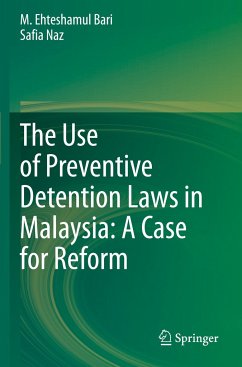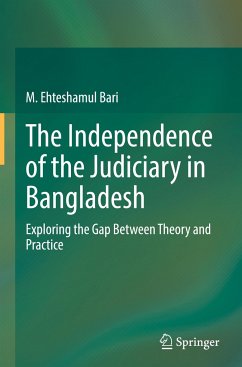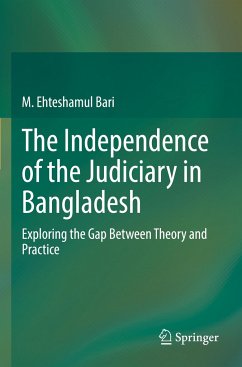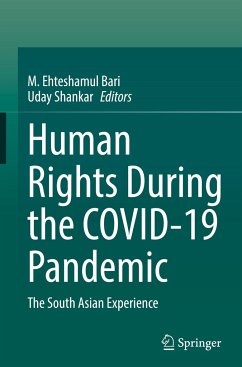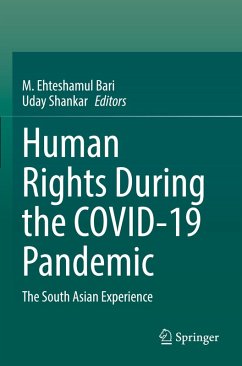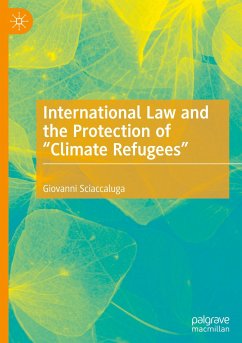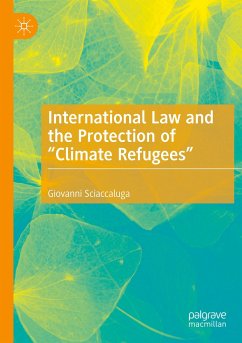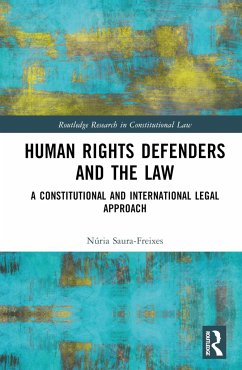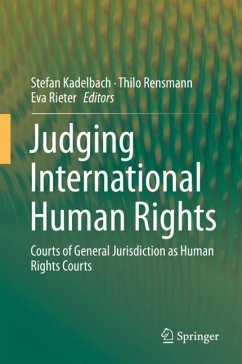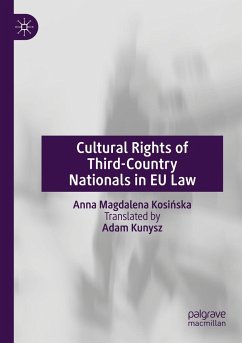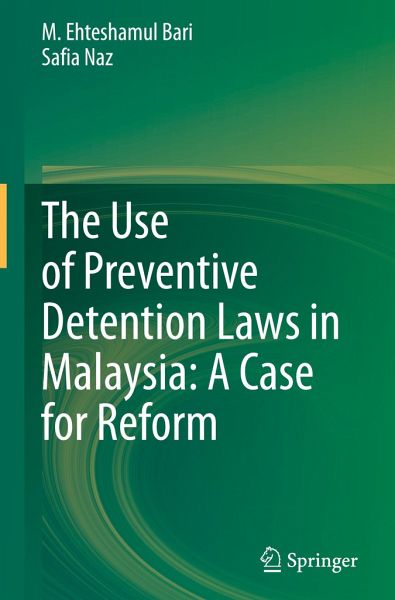
The Use of Preventive Detention Laws in Malaysia: A Case for Reform
Versandkostenfrei!
Versandfertig in 6-10 Tagen
121,99 €
inkl. MwSt.
Weitere Ausgaben:

PAYBACK Punkte
61 °P sammeln!
This book examines the extraordinary nature of the power of preventive detention, which permits executive dispensation of the personal liberty of an individual on the mere apprehension that, if free and unfettered, he may commit acts prejudicial to national security or public order. In light of the extraordinary scope of this power, it, therefore, contends that the scope of the power should be confined to genuine emergencies threatening the life of the nation. Against the above background, this book sheds light on the fact that Article 149 of the Federal Constitution of Malaysia empowers the P...
This book examines the extraordinary nature of the power of preventive detention, which permits executive dispensation of the personal liberty of an individual on the mere apprehension that, if free and unfettered, he may commit acts prejudicial to national security or public order. In light of the extraordinary scope of this power, it, therefore, contends that the scope of the power should be confined to genuine emergencies threatening the life of the nation.
Against the above background, this book sheds light on the fact that Article 149 of the Federal Constitution of Malaysia empowers the Parliament to enact preventive detention laws authorizing the executive branch of government to preventively detain individuals without the precondition of an emergency. Furthermore, the Constitution does not stipulate adequate safeguards for mitigating the harshness of preventive detention laws.
This book makes it manifestly evident thatthe weaknesses of the constitutional provisions concerning preventive detention have enabled succeeding generations of executives in Malaysia to not only enact a series of preventive detention statues for arrogating to themselves wide powers concerning preventive detention but also to rely on them for arbitrarily detaining their political adversaries.
Consequently, on the basis of this analysis, this book puts forward concrete recommendations for insertion in the Constitution detailed norms providing for legal limits on the wide power of the executive concerning preventive detention. The insertion of such norms would ensure the maintenance of a delicate balance between protecting national interests and, simultaneously, observing respect for an individual's right to protection from arbitrary deprivation of liberty.This book is useful for academics and students of comparative constitutional law, human rights and Asian law. The extensivelaw reform analysis undertaken in this book also greatly benefits the policy makers in Malaysia and the policy makers of constitutional polities facing similar problems with the issue of circumscribing the scope of the powers concerning preventive detention.
Against the above background, this book sheds light on the fact that Article 149 of the Federal Constitution of Malaysia empowers the Parliament to enact preventive detention laws authorizing the executive branch of government to preventively detain individuals without the precondition of an emergency. Furthermore, the Constitution does not stipulate adequate safeguards for mitigating the harshness of preventive detention laws.
This book makes it manifestly evident thatthe weaknesses of the constitutional provisions concerning preventive detention have enabled succeeding generations of executives in Malaysia to not only enact a series of preventive detention statues for arrogating to themselves wide powers concerning preventive detention but also to rely on them for arbitrarily detaining their political adversaries.
Consequently, on the basis of this analysis, this book puts forward concrete recommendations for insertion in the Constitution detailed norms providing for legal limits on the wide power of the executive concerning preventive detention. The insertion of such norms would ensure the maintenance of a delicate balance between protecting national interests and, simultaneously, observing respect for an individual's right to protection from arbitrary deprivation of liberty.This book is useful for academics and students of comparative constitutional law, human rights and Asian law. The extensivelaw reform analysis undertaken in this book also greatly benefits the policy makers in Malaysia and the policy makers of constitutional polities facing similar problems with the issue of circumscribing the scope of the powers concerning preventive detention.





